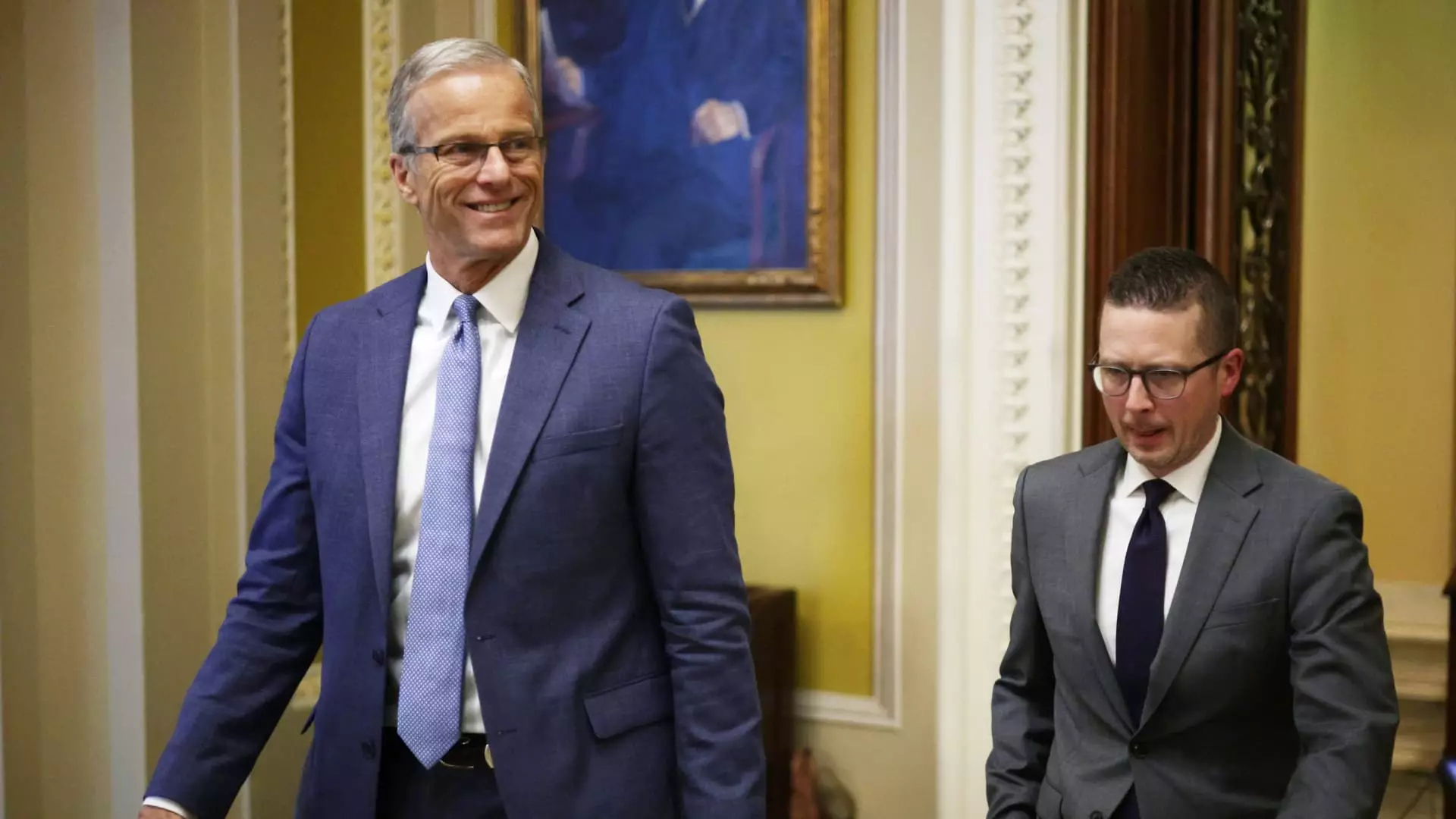The recent passage of President Trump’s sprawling budget bill reveals far more about political maneuvering than genuine legislative progress. While proponents herald it as a significant achievement, the reality uncovers a reckless rush that risks exacerbating America’s fiscal and social issues. The Senate’s decision to pass this “megabill” on a razor-thin, 51-50 vote, with Vice President Vance’s tie-breaking, symbolizes a fragile consensus built on compromised principles and party pressure rather than coherent policy. This act of legislative acrobatics underscores how partisan politics often overshadow thoughtful policymaking, especially when bipartisan dissent is dismissed or marginalized. The outcome reflects a dangerous attitude of expediency—hurrying to meet a self-imposed deadline at the expense of thorough scrutiny.
Weak Foundations: The Problem with Reckless Spending
The bill’s projected addition of at least $3 trillion to the deficit over ten years is no trivial detail; it exposes a startling disregard for fiscal responsibility. Such reckless spending not only threatens the economic stability of future generations but also signals a shift towards short-term political wins rather than sustainable policy solutions. The assertion that this bill “codifies Trump’s domestic agenda” is troubling because it suggests an approach driven more by ideological posturing than evidence-based policymaking. Its deep Medicaid cuts, which some argue threaten vital healthcare services, underscore a fundamental misjudgment of social needs. Instead of tackling real issues like healthcare reform, the bill’s focus seems rooted in political symbolism—proving dominance rather than delivering tangible results.
Partisan Theatre and Democratic Manipulation
Behind the scenes, the process was a spectacle of political theatre. Senators, wrangling over amendments in marathon sessions, demonstrated how legislative processes are often sacrificed to spectacle. Many amendments were superficial—little more than political gambits meant to force colleagues to take contentious stances—highlighting a prioritization of optics over substance. Democrats effectively turned this process into a platform to expose Republican vulnerabilities on the record, further illustrating how legislative negotiations are often more about political posturing than policy innovation. The spectacle fostered a toxic environment in which bipartisan cooperation was secondary to scoring political points in the court of public opinion.
A Dangerous Precedent and a Narrow Path Forward
The bill’s journey to the House signals a precarious future, particularly given the frailty of the Republican majority there. With only a few votes margin for error, the legislation’s passage hinges on political calculus rather than consensus-building. Conservative House members like Chip Roy resist this legislative monster, warning of a Senate-imposed deadline that they see as manipulation rather than necessity. This antagonism underscores a broader issue: bipartisan and even intra-party trust is diminishing as the political climate becomes increasingly polarized and superficial. The rush to get the bill to President Trump’s desk before July 4 promises a compromise built on haste rather than careful policy considerations, risking long-term damage to the legislative process.
The Underlying Danger of Partisan Expediency
At its core, this legislative episode exposes a troubling trend in American governance—prioritization of political victories over responsible policymaking. The spectacle of marathon votes, last-minute amendments, and partisan posturing masks a fundamental weakness in American democracy. When the pressing need to meet arbitrary deadlines dominates deliberation, public trust erodes, and policies become hostage to the fleeting winds of political convenience. This bill, regardless of its particularities, exemplifies a system increasingly driven by expediency and opposition rather than substantive progress. Such an approach risks deepening divisions and forsaking the common good for the sake of political expedience.
This reckless pursuit of victory, cloaked in the rhetoric of unity and progress, demonstrates how far the nation’s legislative culture has devolved into spectacle and party loyalty. The true cost of such a deeply flawed bill may manifest long after the headlines fade—through economic instability, compromised social safety nets, and growing public disillusionment with representatives who put political games ahead of meaningful change.

Leave a Reply